Director – Brandon Cronenberg – 2023 – Canada, Hungary, France – Cert. 18 – 117m
*****
WARNING: NSFW
A man holidaying abroad at a resort with his wealthy wife is lured into a series of crimes, punishable locally by death unless you’re rich enough to buy your way out – in UK cinemas from Friday, March 24th
An infinity pool is a swimming pool designed so that at least one edge appears to go on forever, blending into a seascape or waterscape such as an ocean or lake. It’s limitless. One character in this film once installed such a pool for a local hotel, but that’s really not the point. Which is, something that has no boundary, that appears to extend into infinity. Like the moral transgressions in this film, once the preventative edges of incurred punishment are removed from the perpetration of criminal acts, for which the idea of the infinity pool stands as a metaphor. This may not make sense now, but it will once you’ve watched the film and thought about it.
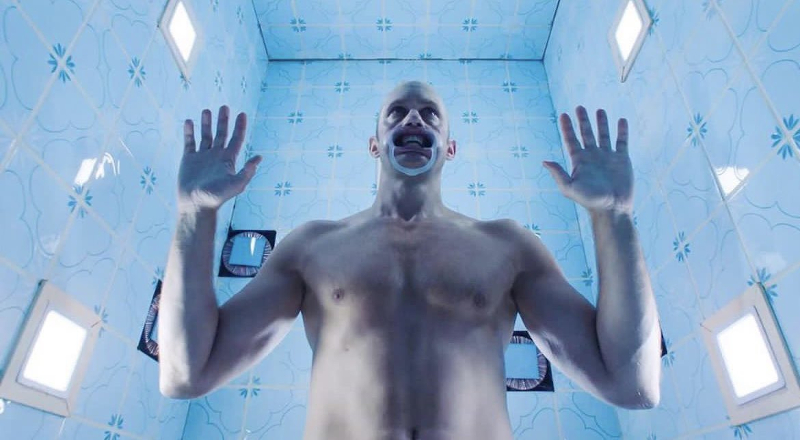
James (Alexander Skarsgärd) and Em (Cleopatra Coleman) Foster are holidaying at a resort. To date, he is a one-book writer: his book was published to rotten reviews and sank without trace and he can’t seem to find an idea for the second one. He is beginning to doubt his own abilities – perhaps he simply isn’t very good. He’s come on holiday hoping to find inspiration. What that inspiration might be, he has no idea. She is a wealthy publisher’s daughter who warned her never to marry a writer. She hated her father, so, she claims, married the first writer she came across just to spite him.

While Em is away on a boat tour of the local archipelago, he is approached by Gabi Bauer (Mia Goth) who tells him read and loved his book. Flattered, he accepts her invitation to dinner at a Chinese place he previously turned down when Em suggested it where Gabi and husband Alban (Jalil Lespert) invite them to leave the compound next day as they’ve hired a car. This breaks the resort’s rules, as the country in which it is situated is poor, hostile to rich tourists and dangerous. However, James persuades Em to go along.
They have a pleasant day at a secluded beach. Well more than pleasant – at one point, Gabi comes up behind James and gives him an unsolicited hand job (which includes explicit close-ups of urine splashing on to the pebbles of a beach, a female hand masturbating male genitals to ejaculation and semen splashing on to the pebbles, an image – now that I think about it – of male impotence in the sense that James’ seed is going nowhere).

It gets dark. Much alcohol has been consumed and Alban is too drunk to drive, so James takes the wheel. There’s a problem with the headlights, probably a loose connection, which keep cutting out then coming back on when he bangs the side of the car with his hand. In the chaos, he suddenly finds the car is almost on top of a man and there’s a fatal collision. The man is killed. Their hosts talk them out of going to the police, as the local constabulary are very different form the Western police back home.
(Curiously, this echoes The Forgiven, John Michael McDonagh, 2022, like this film a Focus Features / Universal Pictures release, even if that one is closer to drama and this more like science fiction.)
A tense moment occurs when the guard of the resort, which is surrounded by walls topped with barbed wire, delays before allowing the four back in since they’re not supposed to be outside the compound.
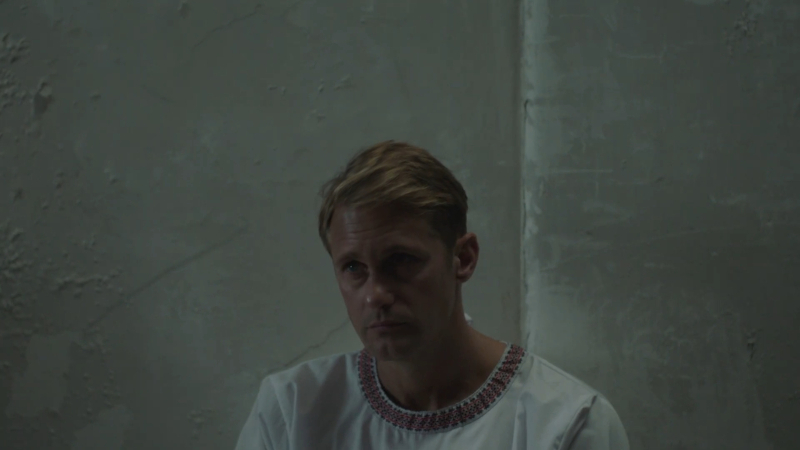
A knock on the door in the morning results in James and Em being frogmarched / driven to the local police station where the gravity of the situation and the way the law works in these parts is explained by Detective Thresh (Thomas Kretschmann), a relative of the man from whom the car was hired. The relatives of people killed have the right to kill the perpetrator(s), so the 13-year-old son of the dead man is to kill James. Here, at the station.
However, owing to the treaty negotiated with the countries from which the tourists come, there’s an alternative: a duplicate can be copied from the perpetrator who has all their hopes, fears and memories in their conscious, and that ‘person’ can be punished in the guilty party’s stead. There is a condition attached – the guilty party his required to watch the duplicate of themselves being executed. There’s also a fee involved, so this only works for the rich. James agrees to stump up the money.
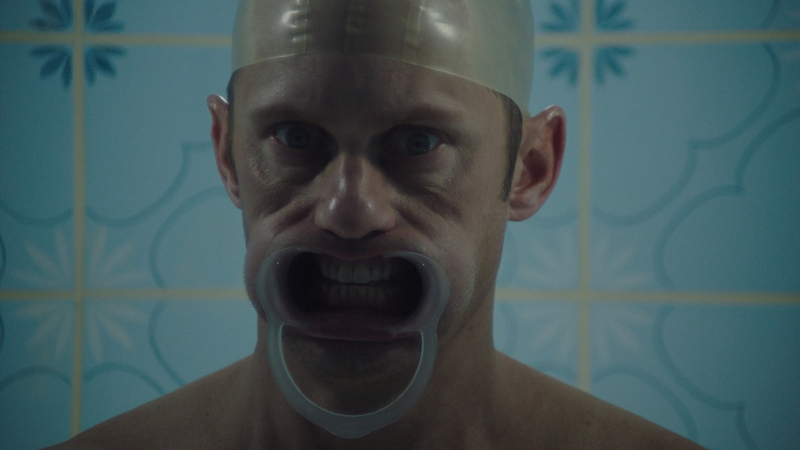
He is put in a chamber to be duplicated, represented visually by cuts to black and rapid-fire images of memory or hallucination. Then he and Em are required be spectators as his duplicate is executed.
It could be argued that this process loosely resembles the Christian belief in Jesus dying in place of transgressive humans to satiate God’s desire to punish transgression, with major differences. Within this concept of Penal Substitution, Jesus willingly substitutes himself for the guilty parties. In the current narrative, however, the duplicates have no choice in the matter, indeed clearly do not want to go through with it. The debt is paid to the debtor.
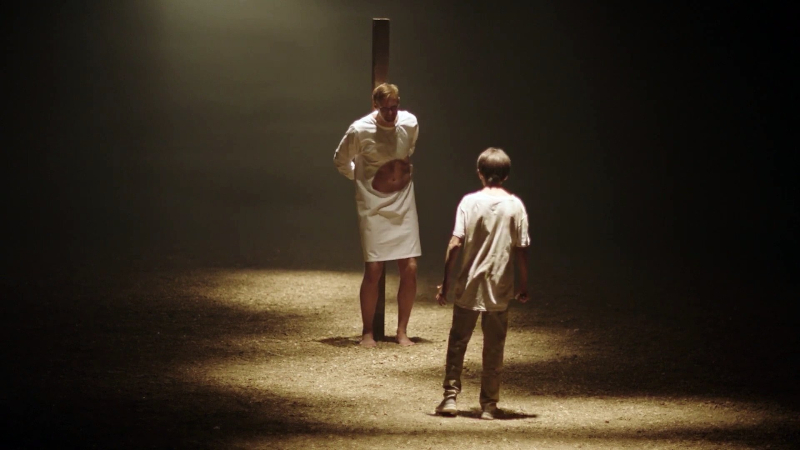
However, unlike Christianity, here there’s no requirement for the perpetrator to repent or change behaviour so as not to perpetrate the crime or similar crimes in the future (sic), it’s simply a question of being rich enough to pay the (extremely steep) fee for the duplication service: one is free to break the law over and over provided one can pay the fee every time. No moral transformation is required.
While I doubt Brandon Cronenberg intended his film to be considered in terms of religion, here he’s essentially dealing with the notion of sin paid for by blood sacrifice, central to Judeo-Christian religious thought and further developed within Christianity, so can’t really avoid it.
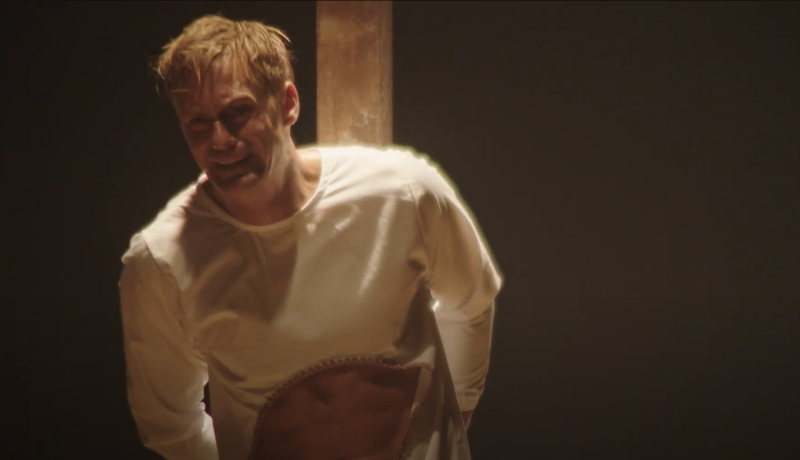
Back at the resort, James and Em decide to leave, but since he’s mislaid his passport, he has to extend their room booking for another week. He encourages her to go without him. She sticks around for a while but becomes increasingly less integral to the narrative until she leaves the resort.
Sitting around later with Alban, Gabi and the couple’s friends, James learns that these are a group of people who’ve been through the same experience. Over the next few days, as first alcohol and later fumes from a local herbal narcotic are imbibed. James is persuaded into extra-compound, armed raids on well off local people outside the resort.
Soon they are back at the police station, paying fees for duplicates of themselves, watching the execution, getting off free. Or perhaps they get killed, and the duplicates get off free – it’s impossible to tell. Having now seen the film twice, I would suggest closely watching James’ appearances, e.g. the incidence of cuts or scars on his face, as these may provide a clue one way or the other.
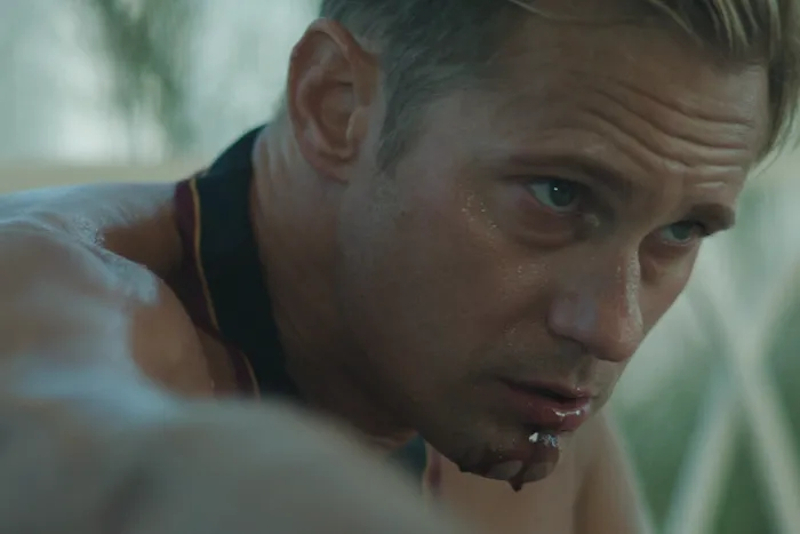
Gabi encourages James into hallucinatory coupling which blossoms into a full blown group sex scenario involving the half-dozen or so rich people who’ve paid to have their duplicates executed.
I personally came to the film from the earlier films of Brandon Cronenberg (Possessor, 2020; Antiviral, 2012) which I adored, not to mention the not dissimilar films of his father David Cronenberg. So a part of me wants (or perhaps is already programmed) to love this movie. However, I found parts of it (particularly later on) a struggle. I squirmed quite a lot watching it, and couldn’t really relate to the characters beyond a certain point. I myself would probably never go to a sealed resort like this, as it’s not really my idea of fun, and I don’t think I would have taken up the initial offer of illegally leaving the compound for a day out. But that’s me.
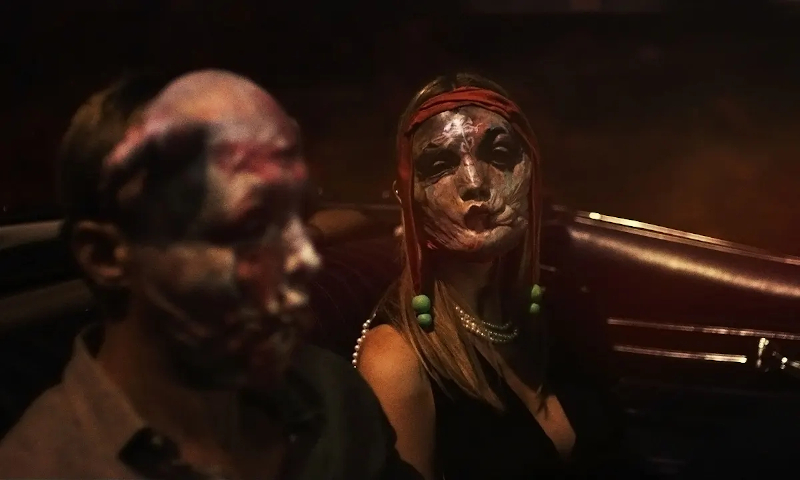
To some extent, if I’m honest, I’ve felt this way about the behaviour of many of the characters in Cronenberg Jr. and Cronenberg Sr.’s films, but usually I find myself watching with a morbid fascination. With Infinity Pool, however, Brandon crosses a line beyond which I find his characters repellent rather than fascinating. James’ first crime, the car accident, is just that – an accident, and at that point, I’m feeling sympathy for him.
However, once James realises he can commit similar crimes with impunity and throws himself into doing so, for me, at least, he becomes harder to relate to if not impossible. On first viewing, I wasn’t that sure what to make of the film, indeed found it quite shocking. It improved on a second viewing.
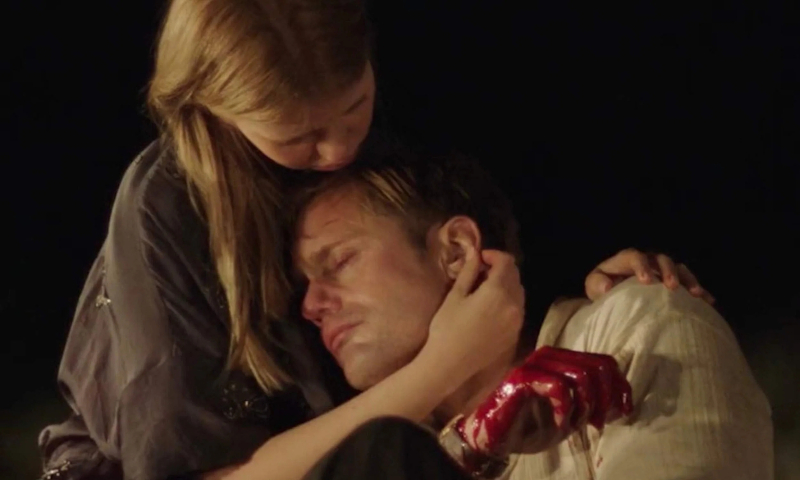
Incidentally, the version we’re getting in UK cinemas (at BBFC 18) is the uncut, US NC-17 version rather than the cut down US R version for widespread US release. Watching the uncut version, it’s pretty obvious what would be cut; the aforementioned explicit close-ups along with equally explicit, more hallucinogenic imagery, notably the (aesthetically beautiful) shot which resembles like something out of a slow motion, time-lapse, horticultural natural history movie except that what it shows is not a flowering plant but a male organ sprouting out of female genitalia. Personally, I’m glad we in the UK are seeing the uncut rather than the cut version in this instance.
Not for the faint-hearted, highly provocative and quite possibly the most transgressive movie we’ll see this year. If you don’t like the sound of that, I would give this a wide berth. Yet, it remains an extraordinary film, in my view.
Infinity Pool is out in cinemas in the UK on Friday, March 24th.
#InfinityPoolMovie
Trailer:
